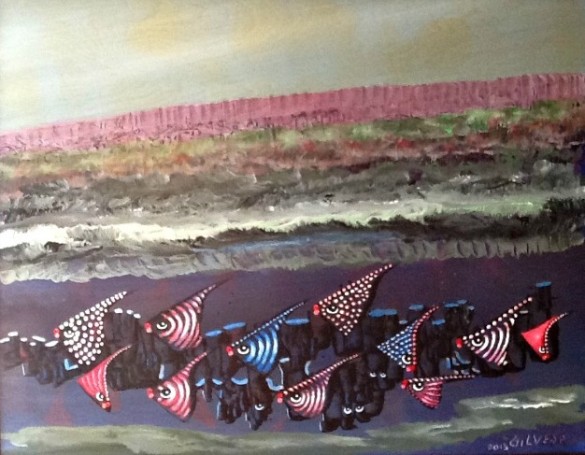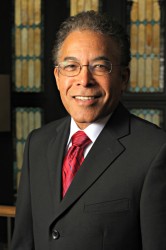
Vanderbilt University will celebrate the fall launch of Latino and Latina Studies, a new multidisciplinary program, with several events during October, which is Hispanic Heritage Month.
Latino and Latina Studies will co-sponsor Día de la Raza, a celebration of the coming together of diverse ethnic, racial and cultural influences in Latin America and the United States, Monday, Oct. 14. The event, which will include live music, dancing and food, will take place at the Bishop Joseph Johnson Black Cultural Center from 4:30 to 6:30 p.m.
Latino and Latina Studies will welcome Joy Castro, an award-winning Latina novelist, essayist and memoirist, Tuesday, Oct. 15, to read from her work and speak about Latino and Latina identity. Castro’s reading and talk will also be at the Johnson Black Cultural Center from 4:30 to 6:30 p.m.

Castro is the author of the novels Hell or High Water and Nearer Home, the memoir The Truth Book, and the collection of essays Island of Bones recently a finalist for the PEN Center USA Literary Award for Creative Nonfiction. She is also the editor of the essay collection Family Trouble. Island of Bones was recently a finalist for the PEN Center USA Literary Award for Creative Nonfiction.
Día de la Raza is co-sponsored by the Black Cultural Center, Vanderbilt Initiative in Data-Intensive Astrophysics and the Afro-Hispanic Review. Both events are free and open to the public.
Latino and Latina Studies is a new academic concentration at Vanderbilt that considers the presence of Latina/os and Hispanics as an integral part of U.S. culture and history. The curriculum includes courses that explore the Latina/o and Hispanic experience, mainly in the United States, but also as it intersects with other national and geographic boundaries across the disciplines.
“Latino and Latina Studies is a new area of inquiry that incorporates other forms of knowledge,” said William Luis, Gertrude Conaway Vanderbilt Professor of Spanish and director of the Program in Latino and Latina Studies. “It transcends any singular discourse and creates bridges across the disciplines.”

Lorraine Lopez, associate professor of English, is co-director of the new program. Affiliated faculty in Latino and Latina Studies come from a variety of departments and programs, including African American and Diaspora Studies, American Studies, Anthropology, English, French and Italian, History, Human and Organizational Development, Latin American Studies, Music, Philosophy, Political Science, Sociology, Spanish and Portuguese, and Women’s and Gender Studies.
Luis noted that Latinos and Latinas are changing the cultural landscape of the country and shaping how Americans conceive of concepts such as identity and the nation. “By the middle of the century, Latinos and Latinas will constitute 30 percent of the U.S. population,” Luis said. “The United States has become home to the second largest Spanish-speaking population in the world. The program will help students develop a multidisciplinary approach necessary for an evolving job market, regardless of their career choices.”
Currently, undergraduate students can major or minor in Latino and Latina Studies. More information about the Latino and Latina Studies program is available on its website.